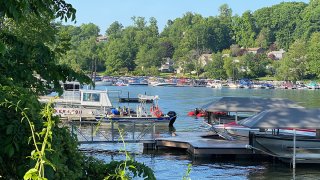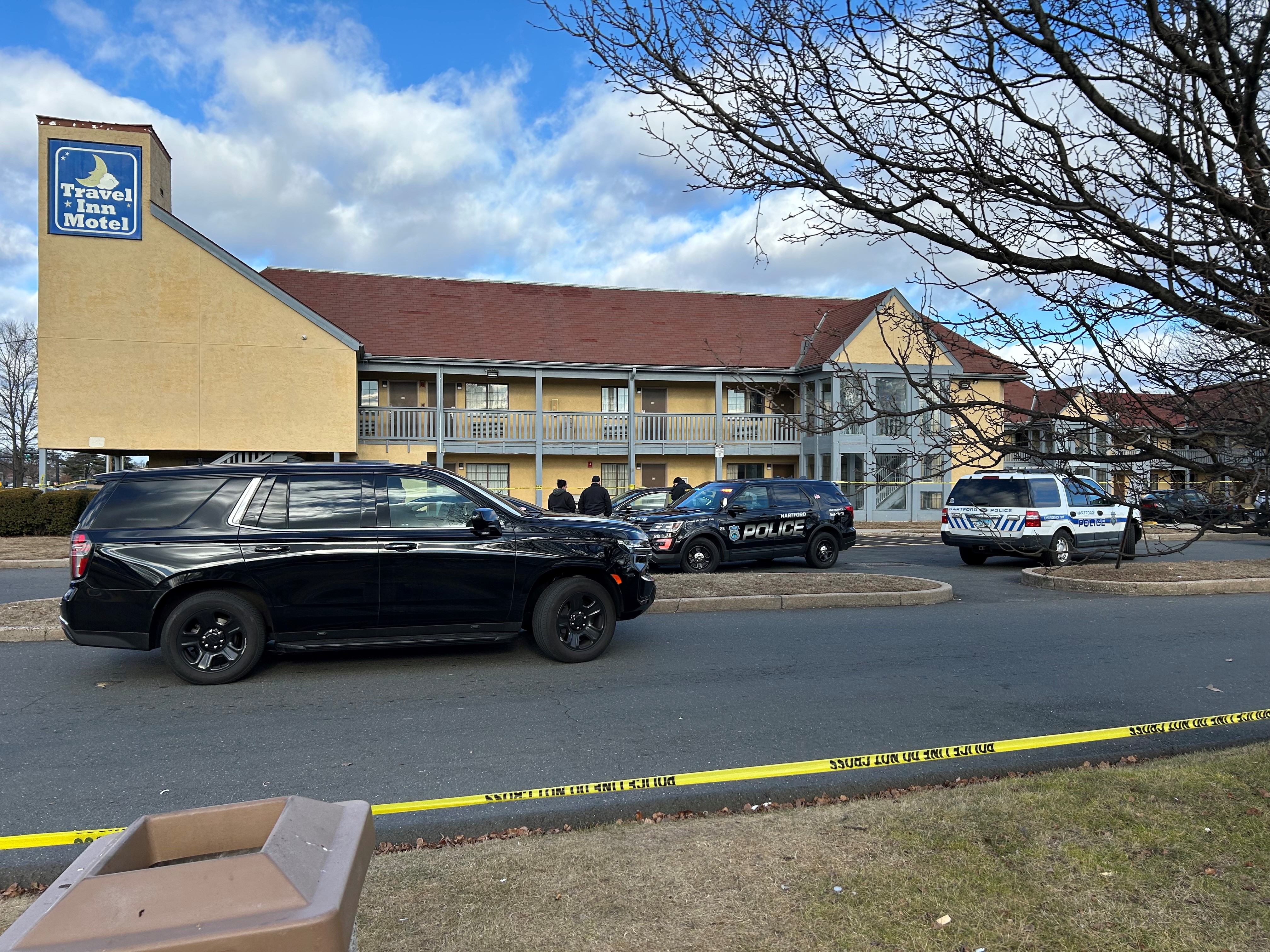
Environmental Conservation Police are looking for your help finding a boater that was reported missing after going into the water at Candlewood Lake in Brookfield Sunday night.
As of Wednesday, no one has been located, according to DEEP.
Police are asking for anyone that were around Brookfield Bay on the lake on May 29 between 5:30 and 6:45 p.m. to come forward.
You can contact EnCon Police at 860-904-8154.
Get top local stories in Connecticut delivered to you every morning. >Sign up for NBC Connecticut's News Headlines newsletter.
Keith Williams, captain of EnCon Police, said they are looking for a 24-year-old Bristol man who was on a pontoon boat with several of his friends. They have not identified the man.
DEEP is gathering information on what happened and said this is a recovery mission.
Brookfield police said their dive team responded to the area of Candlewood Inn around 7:30 p.m. after they received a report that a boater jumped into the water and did not resurface.
The dive team dove in two different areas where they believed the missing boater could be. After not finding anyone and unsafe dive conditions, they turned to sonar technology.
No one was located and operations were suspended, police said. Authorities are back in the area searching for the man.
The state Department of Energy and Environmental Protection said in addition to DEEP EnCon, Danbury Fire, Candlewood Lake Authority, Brookfield Police, Danbury Police, and the state police dive team all assisted.
Williams said Candlewood Lake is the largest lake in the state and it can have currents. The depths of the lake range between 20 and 40 feet, with some that might reach up to 70 feet, and that’s also complicating the search effort.
Local
He added debris, logs and trees in the area make for a difficult search.
Williams said it is important to know your swimming abilities before going in the water and advises wearing a life jacket.
Sign up for our Breaking newsletter to get the most urgent news stories in your inbox.
Swimming Safety
The following tips are from the governor's office:
- DEEP urges all residents and visitors getting in or on the water to prioritize water safety.
- Water temperatures are cold this time of year, despite warmer air temperatures. There is a very real danger of hypothermia for swimmers, particularly children, who enter very cold water for any extended period.
- Visitors to state parks should also be aware that while there will be lifeguards on duty at Hammonasset Beach and Rocky Neck State Parks, many locations will not have lifeguards on duty. It is important to remember that water safety is everyone’s responsibility.
- If you do enter the water, remember:
- Parents and guardians: Watch your children. It only takes seconds for a child to drown, and this can occur silently.
- Be aware of underwater hazards: Natural swimming areas can have sudden drop-offs, holes, large rocks, or tree roots that can’t be easily seen from the surface. Diving and jumping into these waters can be dangerous.
- Swim only in the designated areas and swim with a buddy.
- Take a swimming lesson: Swimming skills can help save lives. People of all ages should consider signing up for a swimming class offered at local YMCAs or municipal parks and recreation departments.
- Drink responsibly: Excessive alcohol consumption impairs judgment and reaction ability. Even prescription drugs may impair judgment. Swim sober.
- Know your limits, including physical fitness and medical conditions.
- Children, inexperienced swimmers, and all boaters should wear U.S. Coast Guard-approved life jackets.
Boating Safety
The following tips are from the governor's office.
DEEP reminds all boaters that cold water temperatures create substantial dangers to recreational boaters, despite the possibility of warm air temperatures.
- Paddlers should exercise caution and use proper equipment, practice safety techniques, wear a life jacket (it’s the law through the end of May), and avoid dangerous situations.
- Paddlers should always be prepared for a sudden cold-water immersion.
- Always wear your life jacket: Connecticut law requires anyone in canoes, kayaks, rowboats, or stand-up paddleboards to wear a properly fitting life jacket between Oct. 1 and May 31. If a boater ends up in the water, a life jacket will make someone more visible to other boaters and will keep them afloat, significantly improving chances for survival.
- Do not paddle alone: Always paddle with a partner and know how to get back into the boat should someone fall overboard. When paddling with a partner, it is easier to get back into a boat or reach shore safely.
- Dress for cold water: Paddlers should dress for the water temperature, not the air temperature. Water temperatures can vary greatly around the state during the spring, but all are still below 68 degrees Fahrenheit, which is considered cold water. Coldwater immersion increases the risk of cold-water shock and involuntary gasp reflex which is a leading cause of drowning.
- File a float plan: Make a travel plan, including details on location and time of departure and return, and provide it to someone. Give them a call when boating has ended, and identify who to call in case of emergency.
- Maintain a proper lookout: Damaged docks, pilings, and trees may be floating down rivers and into Long Island Sound. Boaters should be especially vigilant when they get out on the water to look for and avoid floating debris.
Learn more about cold water boating and paddling in Connecticut here.



